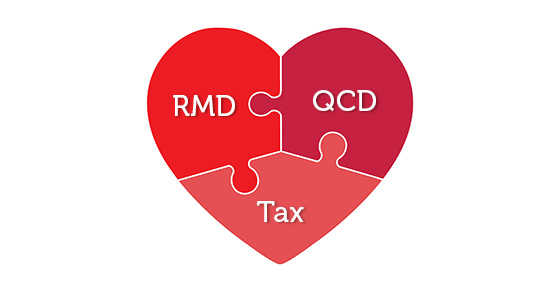

If you’re a philanthropic individual who is also obligated to take required minimum distributions (RMDs) from a traditional IRA, you may want to consider a tax-saving strategy. It involves making a qualified charitable distribution (QCD).
How it works
To reap the possible tax advantages of a QCD, you make a cash donation to an IRS-approved charity out of your IRA. This method of transferring IRA assets to charity leverages the QCD provision that allows IRA owners who are age 70½ or older to direct up to $105,000 of their IRA distributions to charity in 2024. (For married couples, each spouse can make QCDs for a possible total of $210,000.) When making QCDs, the money given to charity counts toward your RMDs but doesn’t increase your adjusted gross income (AGI) or generate a tax bill.
Keeping the donation amount out of your AGI may be important for several reasons. When distributions are taken directly out of traditional IRAs, federal income tax of up to 37% in 2024 will have to be paid. State income taxes may also be owed. That tax is avoided with a QCD. Here are some other potential benefits of a QCD:
Keep in mind: You can’t claim a charitable contribution deduction for a QCD not included in your income. Also keep in mind that the age after which you must begin taking RMDs is now 73, but the age you can begin making QCDs is 70½.
To benefit from a QCD for 2024, you must arrange for a distribution to be paid directly from the IRA to a qualified charity by December 31, 2024. You can use QCDs to satisfy all or part of the amount of your RMDs from your IRA. For example, if your 2024 RMDs are $20,000 and you make a $10,000 QCD, you’d have to withdraw another $10,000 to satisfy your 2024 RMDs.
Other rules and limits may apply. QCDs aren’t right for everyone. Contact us to see whether this strategy would make sense in your situation.

